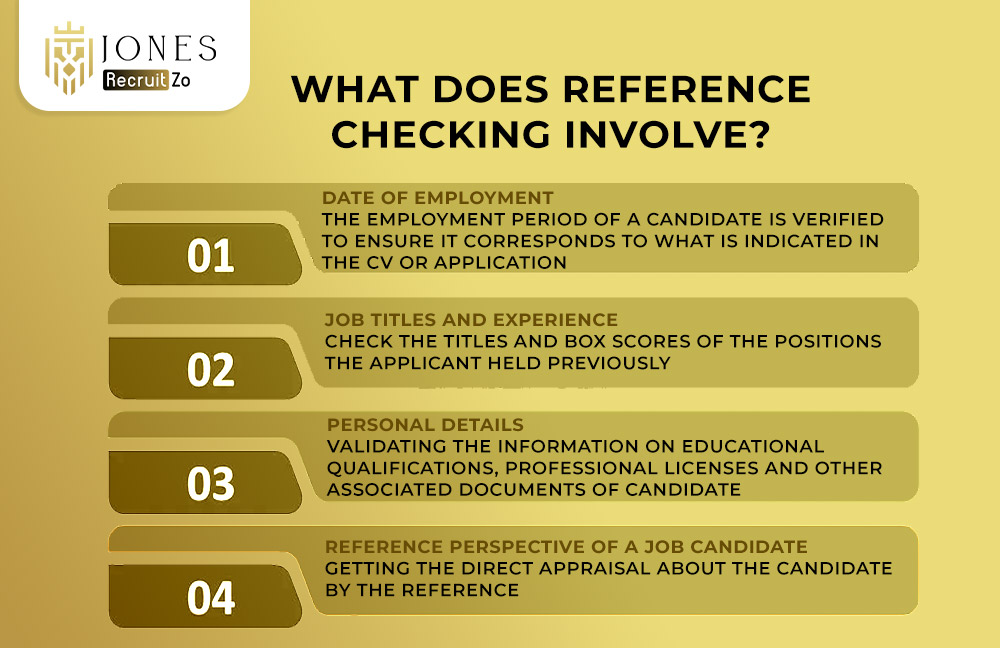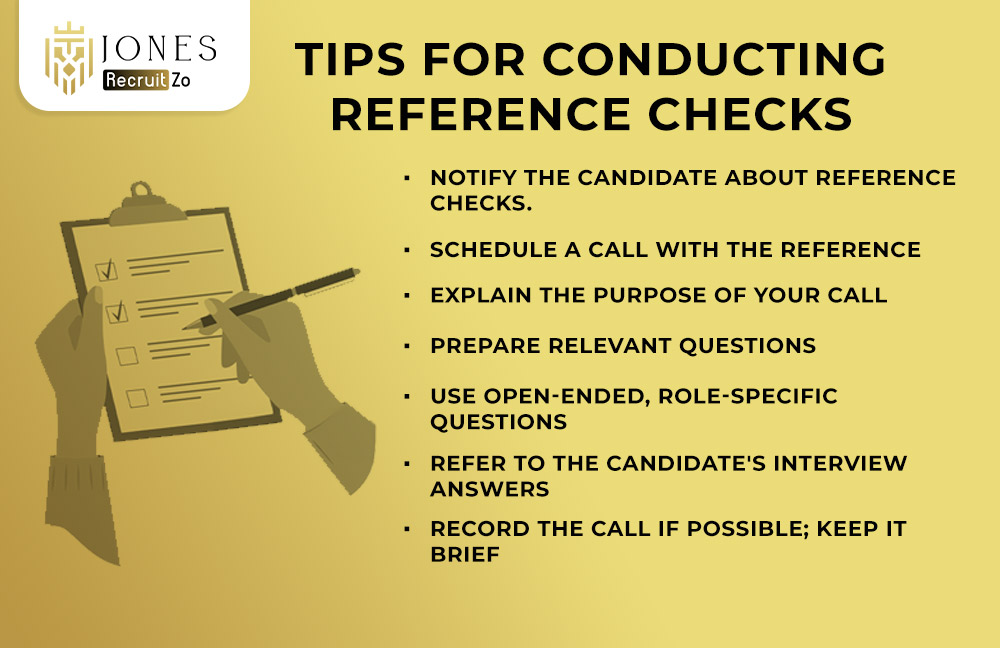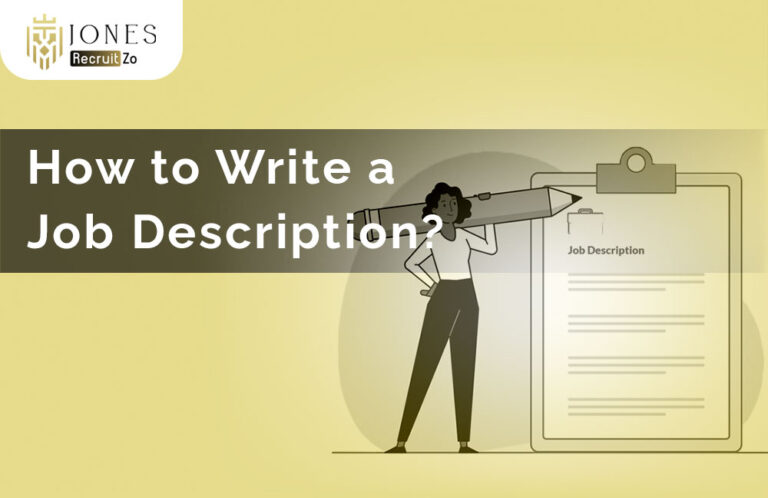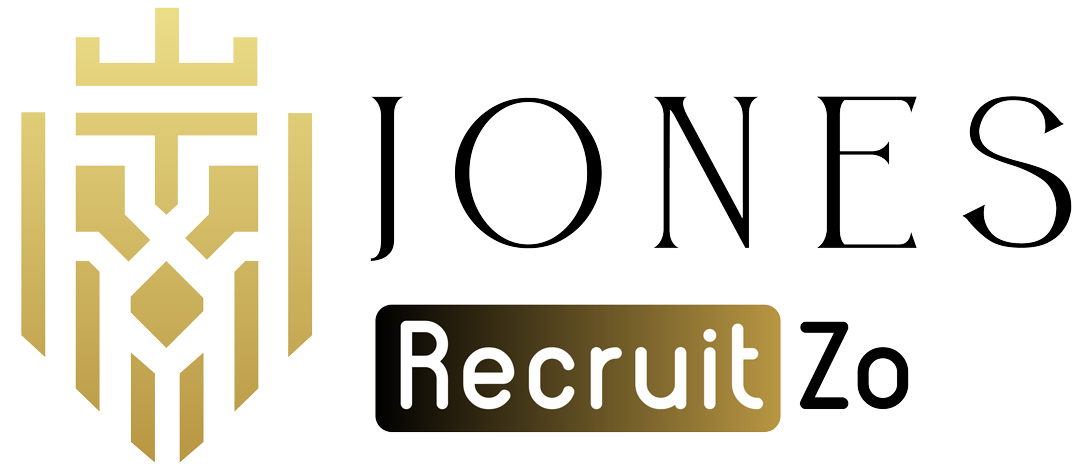What is a Reference Check?
Reference check is an essential step in the recruitment process, where HR managers or hiring managers corroborate information given by a job seeker. This entails calling upon the job seeker’s prior employers, managers or supervisors to ascertain their employment history, experience, competence, character and trustworthiness.
It also helps employers if employers know how well the candidate performed in previous jobs making it easier to arrive at a hiring decision. In other words, reference check in recruitment meaning can be emphasized more as reaching out to such employees who have a similar professional background as that of the applicant to validate any of the facts provided in the CV or during the interviews.
This stage helps clarify what is reference check in recruitment by giving employers insight into the candidate’s adaptability to the corporate culture and their productivity within the specific position. Reference checks can help improve hiring practices by addressing concerns regarding new hires as well as enhancing the overall quality of the hiring process especially regarding candidates’ personality traits such as interpersonal skills, work ethic, and honesty.
What is the difference between background check and Reference check?
While both processes can be understood to assess a person’s social life and working behavior, explaining the essence of a reference check and a background check provides the conclusion that these two serve very different meanings; they are also performed in entirely different ways.
In other words, background investigation encompasses scrutiny of various elements of a candidate’s profile to ensure conformity with the legal and company standards.
Such elements may include criminal history, educational qualifications, credit assessments and even driving records, among others. The central aspect of conducting a background investigation is to ascertain whether the information presented by the candidate is true, and to evaluate whether the individual is fit to hold the said position in concern, in matters of law social stability and enforcement.
On the other hand, reference checking hydrates the more or less the desired work behaviour, abilities and attributes of the serious job applicant. When considering the definition of a reference check in the hiring process, it refers to the process of finding out the performance and character of the applicant while on work instead of just checking if the application has legal issues.
As with most hiring procedures, reference checks are mostly oral or email communication with the previous employers or people who have known the candidate well enough to comment on how he/she behaved and performed at work rather than personal life.
Both checks are important in the process of hiring an individual, but a background check is meant to verify a person’s legal and factual qualifications while the reference check indicates the expected impact of the individual on the organisation in terms of its culture and productivity.
What does reference checking involve?

Reference checking is the process through which truthful and relevant information on a job applicant is obtained systematically. The important areas covered during a reference check include:
-
Date of Employment
The employment period of a candidate is verified to ensure it corresponds to what is indicated in the CV or application. This assists in establishing the overall experience as well as each employment period. Employers tend to pay attention to any potential employment gaps without any explanations, which may require clarity.
-
Job Titles and Experience
It is also very important to check the titles and box scores of the positions the applicant held previously. This information shows the amount of experience and knowledge that the applicant has. The applicant’s title and the attendant duties offer insights into the abilities, experience, and nature of the previous ranks held, which information must be ascertained during a reference checking.
-
Personal Details
Although the reference investigation is usually focused on the candidate’s work performance, occasionally, some simple background information is checked. This may involve validating the information on educational qualifications, professional licenses and other associated documents. The idea is to ensure that the information on the candidate given in the application is the same as that which the reference has on the candidate.
-
Reference perspective of a job candidate
Last stage reference checking is about getting the direct appraisal about the candidate by the reference. The questions may address the ability of the candidate to perform the job, behavioral patterns with others and if they were able to live the organizational values. This aspect is frequently the most illuminating section of the reference check process because it is the empirical knowledge of someone who is aware of the candidate’s strong and weak points.
What happens during the reference check process?
Obtaining references is however a simple process with more than one step in its execution. The first step involves the recruiter or employer contacting the referees given by a candidate. Referees hold various roles and usually consist of any previous employer, coworkers, and clients, and are mainly reached via the telephone or email.
Within that period, the employer directs some questions about the assessment performer’s past positions, recognition, and people skills. For example, the questions may include those that concern the candidate’s ability to carry out his or her duties, the trustworthiness of the individual, and teamwork skills. The aim of this exercise is to verify whether the candidate’s claims are consistent with the information given by the referees and to obtain more specific information about the candidate’s work performance.
The reference check process may change slightly from one organization and position to another. However, a very familiar aspect is that almost all organizations have a degree of secrecy – they do not encourage references to discuss the matter with anyone else in consideration of the candidate or the person who is providing the reference. Such a confidential system of respect leads to an open and frank discussion which is essential in assisting the employers in making appropriate recruitment decisions.
Tips for Conducting Reference Checks

Employers on a reference check have to bear in mind certain practices concerning how best the process can be undertaken. Here are awsome tips for ensuring proper and quality results in a reference check.
-
Notify the candidate about reference checks.
It is not only respectful but also professional to notify the candidate on how the process of reference checking will be conducted. Doing so makes it easy for the candidate to prepare the referees and also to make sure they are available. This also helps the candidate feel that there shouldn’t be any dinners reconstruction with the employer in question.
-
Schedule a call with the reference.
Making a call to the referee is necessary so that the two are provided with enough time to hold an elaborate conversation. An Arranged call prevents a hasty exchange of words and enables the referee to articulate more concerning the candidate’s fitness for the position.
-
Explain the purpose of your call.
After introducing yourself, the next thing you should do is in relation to the background of the call or the reason why the reference check is being conducted at this time. This allows the purpose of the call to be understood and promotes the reference’s contribution of useful information.
-
Prepare relevant questions.
Creating a reference check questionnaire before calling the referees is very important for obtaining credible references. According attention to the questions covering job performance, job reliability, and job interpersonal relationships is important. Each position has its own knowledge and skills which general questions may not cover properly; hence the need for specific questions that pertain to the role.
-
Use open-ended, role-specific questions.
Open-ended questions invite the reference to provide a more descriptive assessment of the candidate. For example: it’s much more informative to ask “What did the candidate do when faced with adversity?” than a simple yes/no question. These must pertain to the respective job opening.
-
Refer to the candidate’s interview answers.
Make reference to the information provided by the candidate during the interview. This is useful as it helps to either uncover weaknesses or reinforce strengths or adequacy of the candidate. For Instance, if a candidate mentioned his/her skills in decision making in the interview, asking for the same from the referee will help to ascertain that indeed, the skills exist.
-
Record the call if possible; keep it brief.
If it can be done then record the conversation with the reference; however, limit the time taken on the call If it can be done, then recording the conversation (if the reference agrees) is often a helpful means of preserving the accuracy of detail, and it also offers the advantage of a recruiter referring back to the conversation if necessary. However, while detail is good, cleansing the presence of all that is excessive respect for their time, for example, focuses on the detail and brevity of the call.
By implementing these strategies, it allows an employer to perform a useful reference check that any potential new hire should undergo in order to find out more about them and their work history. The reference check meaning in recruitment is in that every addition made to the team is a positive one, having a Work culture fit and known skills. A reference check process can work wonders in creating a strong opportunities and outcome driven team.
FAQs
1) What is meant by Reference Check?
A reference check is a process where employers contact a job candidate’s previous employers, managers, or colleagues to verify their skills, work history, and overall performance. It helps employers assess a candidate’s suitability for the role based on their past job experiences and behaviour.
2) What is asked in a reference check?
During a reference check, employers typically ask about the candidate’s job performance, work ethic, skills, reliability, and ability to work with others. Specific questions may include confirming job titles, dates of employment, and gaining insight into how the candidate handled various situations in the workplace.
3) What is the reference check process?
The reference check process involves reaching out to the candidate’s provided references, usually former managers or colleagues. Employers then ask targeted questions about the candidate’s performance and behaviour to confirm their qualifications and suitability for the job. This process helps ensure a candidate’s claims align with their past experiences.
4) What are the Tips for Conducting Reference Checks?
Key tips for conducting reference checks include notifying the candidate in advance, scheduling a call with the reference, and preparing relevant, role-specific questions. It’s also important to keep the conversation brief, use open-ended questions, and compare responses with the candidate’s interview answers to ensure consistency.







